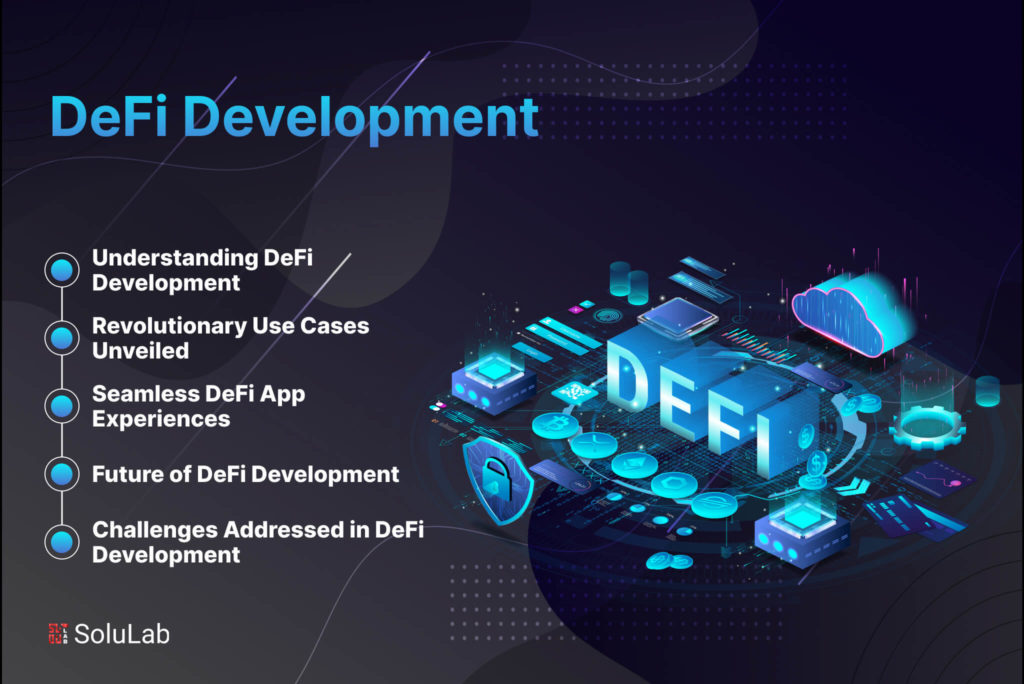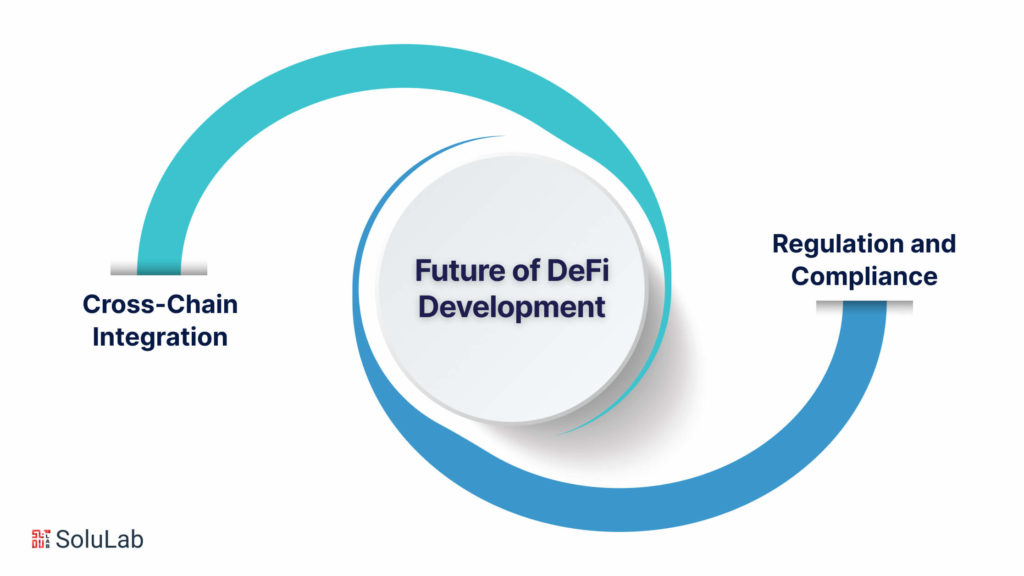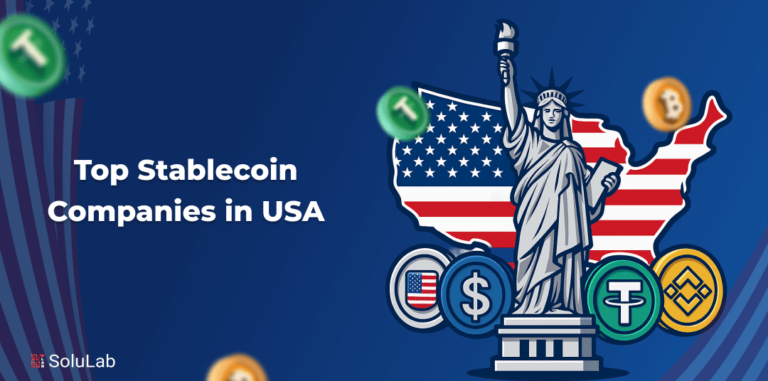
In recent years, the world of finance has witnessed a transformative wave with the rise of Decentralized Finance (DeFi). This paradigm shift has given birth to a new era of financial services, free from traditional intermediaries. DeFi Development is the process of building decentralized financial applications on blockchain networks. It involves a variety of technical and non-technical tasks, including:
-
- Blockchain technology: DeFi applications are built on blockchain networks, which are decentralized, secure, and transparent. The most popular blockchains for DeFi development are Ethereum, Binance Smart Chain, and Solana.
- Token creation: DeFi applications typically use tokens to represent assets, such as coins, bonds, and derivatives. Tokens are created through tokenization, which involves issuing a digital representation of an asset on the blockchain.
- Use cases: DeFi applications offer a wide range of defi use cases, including:
- Staking: Staking is locking up cryptocurrency tokens to earn rewards.
- Lending and borrowing: DeFi lending and borrowing platforms allow users to lend and borrow cryptocurrencies without needing a centralized intermediary.
- Trading: DeFi platforms allow users to trade cryptocurrencies and other digital assets.
- Derivatives: DeFi derivatives platforms allow users to trade financial contracts, such as options and futures.
- App development: DeFi applications are typically built as decentralized applications (dApps). dApps run on the blockchain and are not controlled by a single entity.
- Key players in the industry: The DeFi industry is still in its early stages, but several key players are driving its growth. These include:
- Blockchain protocols: Blockchain protocols such as Ethereum, Binance Smart Chain, and Solana provide the underlying infrastructure for DeFi applications.
- DeFi projects: DeFi projects are the developers who build DeFi applications.
- DeFi investors: DeFi investors are the individuals and institutions who invest in DeFi projects
DeFi Development is a rapidly growing field, and there are several opportunities for developers to get involved. If you are interested in learning more about DeFi Development, several resources are available online.
Understanding DeFi Development
At its core, DeFi Development leverages blockchain technology to create a trustless and transparent financial ecosystem. We delve into the significance of blockchain, the backbone that ensures secure, immutable, and decentralized transactions.
1. DeFi Blockchain Development
DeFi, short for Decentralized Finance, relies on blockchain technology to create a trustless and transparent financial ecosystem. Blockchain forms the backbone of DeFi, ensuring secure, immutable, and decentralized transactions.
DeFi applications are built on top of blockchains, which are distributed ledgers that record transactions in a secure and tamper-proof manner. This eliminates the need for a central authority, such as a bank or a government, to verify transactions. As a result, DeFi applications are more efficient, transparent, and secure than traditional financial services.
DeFi applications offer various financial services, including lending, borrowing, trading, and investing. These services are typically offered at lower fees than traditional financial services and are often available 24/7. DeFi applications are also more accessible than conventional financial services, as anyone with an internet connection can access them.
DeFi is still a relatively new field, but it has the potential to revolutionize the financial industry. DeFi applications offer several advantages over traditional financial services, including efficiency, transparency, security, and accessibility. As DeFi continues to develop, it is likely to play an increasingly important role in the financial system.
2. DeFi Token Development
Tokens are the essential building blocks of the DeFi ecosystem. They are used to represent value, facilitate transactions, and provide governance over decentralized applications (DApps). There are many different types of tokens used in DeFi, including:
- Stablecoins: These are tokens that are pegged to a fiat currency, such as the US dollar, and are used to provide stability in the DeFi market.
- Governance tokens: These tokens give holders a say in the decision-making process of a DApp.
- Utility tokens: These tokens provide access to a DApp’s features or services.
- Security tokens: These tokens represent ownership in a real-world asset, such as a company or a piece of real estate.
DeFi Token Development is the process of creating new tokens for use in the DeFi ecosystem. This process can be complex and requires a deep understanding of blockchain technology and smart contract development. However, DeFi Token Development is essential for the continued growth and development of the DeFi ecosystem.
Tokens play a crucial role in shaping the financial instruments that power DApps within the DeFi ecosystem. For example, stablecoins can be used to provide liquidity for trading pairs, governance tokens can be used to give users a say in the decision-making process of a DApp, and utility tokens can be used to provide access to a DApp’s features or services.
The DeFi ecosystem is constantly evolving, and new tokens are being created all the time. As the DeFi ecosystem continues to grow, DeFi Token Development will become an increasingly important role in the blockchain industry.
Top DeFi Use Cases You Need to Know in 2025
The realm of decentralized finance offers a myriad of applications. Explore the transformative defi use cases, from decentralized exchanges (DEX) and lending platforms to innovative concepts like yield farming and decentralized autonomous organizations (DAOs). These examples illustrate the versatility and impact of DeFi on traditional financial services.
1. Decentralized Exchanges (DEX)
DeFi has facilitated the creation of decentralized exchanges (DEXs), which allow users to trade cryptocurrencies directly with each other, without the need for a centralized intermediary. This has revolutionized the way that users swap tokens, as it is now possible to do so quickly, easily, and securely.
Popular DEX platforms like Uniswap and SushiSwap have gained prominence in recent years, as they offer a variety of features that make them attractive to users. These features include:
- Liquidity: DEXs typically have very high liquidity, which means that users can easily buy and sell tokens without having to worry about slippage. Slippage is the difference between the expected price of a trade and the actual price that is executed. When there is low liquidity, it can be difficult to buy or sell tokens at a price that is close to the market price. This can lead to losses for traders.
- Low fees: DEXs typically charge much lower fees than centralized exchanges. This is because DEXs do not need to maintain a centralized infrastructure, which can be expensive.
- Security: DEXs are often more secure than centralized exchanges, as they are not subject to the same risks of hacking or fraud. Centralized exchanges are a single point of failure, which means that if they are hacked, all of the user funds on the exchange are at risk. DEXs, on the other hand, are decentralized, which means that there is no single point of failure. If one node is hacked, the other nodes can continue to operate.
As a result of these advantages, DEXs are becoming increasingly popular, and are expected to continue to grow in the future. However, there are also some challenges that DEXs face, such as the lack of regulation and the complexity of the user interface. As DEXs continue to develop, they must address these challenges to reach a wider audience.
2. Lending and Borrowing
DeFi and blockchain use cases enable lending and borrowing protocols where users can lend their assets to earn interest or borrow assets by collateralizing their holdings. Platforms like Aave and Compound have become integral to this aspect of decentralized finance.
Lending and borrowing are two of the most fundamental financial activities, and DeFi has brought them to the blockchain in a way that is more transparent, efficient, and accessible than ever before.
With DeFi lending, users can deposit their assets into a lending pool and earn interest on their deposits. The interest rates are typically higher than what is offered by traditional banks, and the funds are often available to borrowers more quickly.
DeFi borrowing allows users to borrow assets against their cryptocurrency holdings. The assets used as collateral are typically locked up in a smart contract, and the borrower must repay the loan with interest. If the borrower fails to repay the loan, the collateral is liquidated and sold to repay the lender.
Aave and Compound are two of the most popular DeFi lending and borrowing platforms. Aave offers a variety of lending products, including fixed-rate loans, variable-rate loans, and flash loans. Compound is a lending protocol that uses an automated market maker (AMM) to set interest rates.
DeFi lending and borrowing is still a relatively new and evolving field, but it has the potential to revolutionize the way we think about finance. By providing a more transparent, efficient, and accessible way to lend and borrow money, DeFi is making financial services more available to everyone.
3. Asset Management
The simple definition of asset management is the way an individual invests and holds their assets. Third parties that manage assets on behalf of other parties are most frequently referred to as asset managers in transitional finance. Both personal holdings and investments made by third parties on behalf are included in crypto asset management.
Managing your cryptocurrency assets allows you to be a private bank for yourself. In legacy finance, you can theoretically keep the fiat money and valuable assets in a safe under your bed, but in reality, you can’t. It’s not very safe, to start. Second, the majority of financial services and goods, including stock trading, electronic payments, and borrowing and lending are no longer available to you.
In crypto this is untrue. Without sacrificing any of the financial offerings and conveniences, you can keep complete control over your assets. It is simple and secure to use self-custodial wallets, such as the Bitcoin.com Wallet. Although you have the choice to self-custody your crypto assets, doing so will prevent middlemen from having the unjust gatekeeping advantage they have in traditional markets.
4. Decentralized Autonomous Organizations (DAOs)
DeFi is a rapidly growing financial ecosystem that is built on blockchain technology. One of the most important aspects of DeFi is the decentralization of governance. This means that decisions about how the ecosystem operates are made by the community, rather than by a central authority.
DAOs, or decentralized autonomous organizations, are a key component of DeFi. DAOs are organizations that are governed by smart contracts, which are pieces of code that automate decision-making processes. This means that DAOs can operate without the need for a central authority, which makes them more efficient and secure.
One of the most well-known DAOs is MakerDAO. MakerDAO is a decentralized lending platform that allows users to borrow cryptocurrency against their Ethereum holdings. MakerDAO is governed by a DAO called the Maker Governance System (MGS). The MGS is responsible for making decisions about how MakerDAO operates, such as setting interest rates and determining the collateral that users can use to borrow cryptocurrency.
The MGS is made up of two components: the MakerDAO token (MKR) and the Maker voting system. MKR holders can vote on proposals that are submitted to the MGS. The proposals that receive the most votes are implemented. This means that the community has a direct say in how MakerDAO is governed.
Decentralized governance is a key feature of DeFi. DAOs like MakerDAO exemplify how decentralized governance can drive the development and direction of projects. By giving the community a voice in how the ecosystem operates, DAOs can help to ensure that DeFi remains a transparent and accountable financial system.
5. Tokenization
The act of producing digital assets, or tokens, that are distributed and controlled via a blockchain network is referred to as tokenization. Value transfers are made safe and quick using this technology. Tokenization is a key component of decentralized finance (DeFi) and is primarily linked to the Ethereum blockchain. These tokens serve as the network’s engine, giving users access to a variety of financial opportunities.
A variety of assets, like as money, real land, or even intellectual property can be represented by tokens. Tokenization makes financial markets more accessible and liquid by digitizing these assets. Traditional barriers to asset ownership and exchange are being broken down by the ease with which users can trade, store, and move these digital alternatives around the world.
With the use of decentralized blockchain technology, token transactions are transparent and safe, which lowers the possibility of fraud. Tokenization also gives people more control over their assets, which empowers them.
Read Also: DeFi Vs. CeFi
DeFi App Development
The user interface is crucial in the decentralized landscape. DeFi App Development focuses on creating intuitive interfaces for interacting with decentralized applications, enhancing user experiences, and making the adoption of decentralized financial services more accessible.
1. Smart Contracts and DeFi Apps
Smart contracts are the backbone of decentralized finance (DeFi) applications. They are self-executing pieces of code that can be used to automate financial transactions. Smart contracts are programmed to execute predefined rules without the need for intermediaries, which can help to reduce costs and increase efficiency.
DeFi app development focuses on creating user-friendly interfaces for interacting with smart contracts. These interfaces can be used to create a variety of DeFi applications, such as lending platforms, trading platforms, and derivatives platforms.
Here are some of the benefits of using smart contracts in DeFi applications:
- Reduced costs: Smart contracts can help to reduce costs by automating financial transactions. This can be beneficial for both businesses and consumers. For example, a smart contract can be used to automate the loan origination process, which can save time and money for both the lender and the borrower.
- Increased efficiency: Smart contracts can help to increase efficiency by automating financial transactions. This can save time and money, and it can also reduce the risk of human error. For example, a smart contract can be used to automatically execute a trade order, which can save the trader from having to manually enter the order.
- Enhanced security: Smart contracts can help to enhance security by reducing the risk of fraud and human error. For example, a smart contract can be used to verify the authenticity of a financial transaction, which can help to protect both the buyer and the seller.
DeFi app development is a rapidly growing field. As the DeFi ecosystem continues to evolve, we can expect to see even more innovative and user-friendly DeFi applications being developed. These applications will have the potential to revolutionize the way we interact with the financial system.
In addition to the benefits listed above, smart contracts can also be used to create new financial products and services that were not previously possible. For example, smart contracts can be used to create decentralized exchanges (DEXs), which allow users to trade cryptocurrencies without the need for a centralized intermediary. Smart contracts can also be used to create lending platforms, insurance products, and other financial services.
The potential of smart contracts is vast, and DeFi app development is just beginning to scratch the surface. As the DeFi ecosystem continues to grow, we can expect to see even more innovative and groundbreaking applications being developed.
2. Wallet Integration
Seamless integration with cryptocurrency wallets is essential for DeFi applications. Wallets like MetaMask and Trust Wallet empower users to interact securely with decentralized financial services.
DeFi applications are built on blockchains, which are decentralized networks that allow users to transact directly with each other without the need for a central authority. This means that users have complete control over their funds and can access DeFi services from anywhere in the world. However, interacting with blockchains can be complex and technical, which is why cryptocurrency wallets are so important.
Wallets like MetaMask and Trust Wallet provide a user-friendly interface that allows users to store, send, and receive cryptocurrencies. They also provide access to DeFi applications, making it easy for users to participate in the decentralized financial ecosystem.
Seamless integration between DeFi applications and cryptocurrency wallets is essential for a good user experience. When users can easily connect their wallets to DeFi applications, they can start using these services right away. This is important for the growth of the DeFi ecosystem, as it makes it easier for new users to get started.
In addition to providing a user-friendly interface, cryptocurrency wallets also play an important role in security. They protect users’ private keys, which are used to sign transactions on the blockchain. If a user’s private key is compromised, their funds could be stolen. Cryptocurrency wallets use a variety of security features to protect users’ private keys, such as 2FA and encryption.
Seamless integration with cryptocurrency wallets is essential for DeFi applications. Wallets like MetaMask and Trust Wallet empower users to interact securely with decentralized financial services. They provide a user-friendly interface and a variety of security features to protect users’ funds.
3. User Experience (UX) Design
DeFi App Development prioritizes UX design to ensure that users, both experienced and novice, can navigate and utilize the applications effortlessly. Intuitive interfaces enhance user adoption and engagement.
DeFi apps are complex financial tools, and it is important to make them as user-friendly as possible. A well-designed UX will help users understand how to use the app, make informed decisions, and avoid mistakes.
Some of the key elements of a good UX design for DeFi apps include:
- Clear and concise navigation: Users should be able to easily find the information and features they need.
- Affordable learning curve: Users should be able to learn how to use the app quickly and easily.
- Error prevention: The app should be designed to minimize the risk of users making mistakes.
- Responsive design: The app should be compatible with a variety of devices and screen sizes.
By prioritizing UX design, DeFi app developers can create applications that are easy to use, secure, and effective. This can lead to increased user adoption and engagement, which can ultimately benefit the entire DeFi ecosystem.
Challenges in DeFi Development
While the potential of DeFi is vast, it’s not without challenges. Dive into the hurdles faced in Challenges in DeFi Development, including security concerns and scalability issues. Explore how the industry is actively addressing these challenges to ensure the robustness and scalability of decentralized finance.
1. Security Concerns
The decentralized nature of DeFi does not make it immune to security risks. Smart contract vulnerabilities, hacks, and exploits have posed significant challenges for DeFi developers. To protect users and ensure the integrity of the DeFi ecosystem, developers must prioritize robust security measures.
Some of the most common security risks associated with DeFi include:
- Smart contract vulnerabilities: Smart contracts are pieces of code that automate the execution of financial transactions on the blockchain. If a smart contract is not properly written, it can be vulnerable to attack. For example, a hacker could exploit a vulnerability in a smart contract to drain funds from a DeFi protocol.
- Hacks: DeFi protocols are often targeted by hackers who attempt to steal funds. These attacks can be carried out in a variety of ways, such as through phishing scams, malware, or exploiting vulnerabilities in smart contracts.
- Exploits: DeFi protocols can also be exploited by malicious actors who use loopholes in the protocol to gain an unfair advantage. For example, a hacker could exploit a loophole in a lending protocol to borrow funds without repaying them.
To mitigate these risks, DeFi developers must take steps to ensure the security of their protocols. These steps may include:
- Auditing smart contracts: Smart contracts should be audited by security experts to identify and fix any vulnerabilities.
- Using secure coding practices: Developers should use secure coding practices to reduce the risk of vulnerabilities in their smart contracts.
- Implementing security measures: DeFi protocols should implement security measures such as multi-signature wallets and transaction signing to protect users’ funds.
By prioritizing robust security measures, DeFi developers can help to protect users and ensure the integrity of the DeFi ecosystem.
2. Scalability
As DeFi gains traction, scalability becomes a hurdle. High gas fees and network congestion on blockchain networks like Ethereum underscore the need for scalable solutions to accommodate growing user demands. DeFi applications are built on blockchains, which are decentralized networks that maintain a shared ledger of transactions. This decentralization is a key advantage of DeFi, as it makes it more difficult for bad actors to manipulate the system. However, it also makes blockchains less scalable than traditional centralized systems.
When a large number of users attempt to interact with a DeFi application on a blockchain, the network can become congested. This can lead to high gas fees, which are the fees that users pay to execute transactions on the blockchain. In some cases, gas fees can be so high that they make it impractical to use DeFi applications.
There are several ways to address the scalability problem in DeFi. One approach is to use sidechains, which are separate blockchains that are linked to the main blockchain. Sidechains can process transactions more quickly and cheaply than the main blockchain, which can help to reduce congestion and lower gas fees.
Another approach to scalability is to use sharding, which is a technique for dividing a blockchain into smaller pieces. Sharding can help to improve the performance of blockchains by distributing the load across multiple shards. DeFi is still a relatively new field, and there is no single solution to the scalability problem. However, the development of scalable solutions is essential for the continued growth of DeFi.
The Future of DeFi Development

What lies ahead for decentralized finance? Peer into The Future of DeFi Development, where cross-chain integration and regulatory considerations take center stage. Explore the evolving landscape and anticipate the technological advancements that will shape the future of financial services.
-
Cross-Chain Integration
The future of DeFi lies in interoperability. Cross-chain integration allows users to interact seamlessly with various blockchains, expanding the scope and accessibility of decentralized finance.
Currently, DeFi is limited by the fact that it is confined to a single blockchain. This means that users who want to access DeFi applications must use the same blockchain, which can be inconvenient and limiting. Cross-chain integration would allow users to access DeFi applications from any blockchain, making it much more accessible and user-friendly.
There are several ways to achieve cross-chain integration. One popular method is through the use of bridges. Bridges are essentially two-way channels that allow users to transfer assets between different blockchains. Another method of cross-chain integration is through the use of interoperability protocols. Interoperability protocols are designed to allow different blockchains to communicate with each other.
Cross-chain integration is essential for the future of DeFi. It will allow DeFi to reach a wider audience and provide users with more options and opportunities. As the DeFi ecosystem continues to grow, cross-chain integration will become increasingly important.
-
Regulation and Compliance
As the DeFi space matures, regulatory clarity becomes paramount. As DeFi protocols become more complex and interconnected, regulators will need to develop a clear understanding of how these protocols operate to effectively oversee them. This will require a delicate balance between decentralization and compliance. On the one hand, regulators will need to ensure that DeFi protocols are not used for illegal activities, such as money laundering or terrorist financing. On the other hand, they will need to avoid stifling innovation by imposing overly burdensome regulations.
One way to strike this balance is through the use of principles-based regulation. Principles-based regulation focuses on the objectives of regulation, rather than on specific rules and regulations. This allows regulators to adapt to the rapidly changing DeFi landscape and to address new risks as they emerge. Another way to balance decentralization and compliance is through the use of sandboxes. Sandboxes are experimental environments where new financial products and services can be tested without the full regulatory burden. This allows regulators to gain experience with new technologies and to identify potential risks before they become widespread.
The future landscape of DeFi development will be shaped by how regulators approach these issues. If regulators can strike a balance between decentralization and compliance, DeFi can continue to grow and innovate, while also mitigating the risks associated with these new technologies.
Conclusion
In finance, DeFi Development has emerged as a powerful force, reshaping traditional paradigms and opening new frontiers of financial inclusion. This journey into the decentralized realm of blockchain and tokens has showcased the diverse defi use cases, ranging from decentralized exchanges and lending platforms to innovative concepts like yield farming and decentralized autonomous organizations (DAOs).
In addressing the challenges of security vulnerabilities and scalability, the path ahead for DeFi Development necessitates innovation and collaboration. Cross-chain integration and considerations for regulatory compliance are key facets that will define the future landscape of decentralized finance.
In this transformative journey, SoluLab stands as a beacon of expertise and innovation in the realm of DeFi Development. As a leading DeFi Development Company, SoluLab’s commitment to providing end-to-end solutions for blockchain, token creation, and decentralized application development has been instrumental in shaping the decentralized finance landscape. The evolution of DeFi continues, and with SoluLab at the forefront, the horizon looks promising for a more inclusive, accessible, and decentralized financial future. Explore the possibilities, navigate the challenges, and embrace the transformative potential of DeFi with SoluLab.
FAQs
1. What is DeFi and how does it leverage blockchain technology?
Decentralized Finance (DeFi) refers to a financial ecosystem built on blockchain technology that eliminates intermediaries like banks. It allows users to conduct transactions, lend, borrow, and earn interest in a decentralized manner using smart contracts and cryptocurrencies.
2. What are some common challenges in DeFi development?
Some of the key challenges in DeFi development include security vulnerabilities in smart contract development, scalability issues due to network congestion on blockchain technology, and regulatory uncertainty across different jurisdictions. These challenges pose risks to widespread adoption.
3. How does blockchain technology ensure security in DeFi?
Blockchain technology ensures security in DeFi by providing a decentralized ledger that is immutable and transparent. All transactions are recorded on the blockchain, making them traceable and resistant to tampering, which helps in preventing fraud and increasing trust among users.
4. What is the future of DeFi yield farming?
The future of DeFi yield farming looks promising as new platforms emerge, offering innovative rewards and incentives. However, as the market matures, platforms will likely focus more on sustainable returns and reducing risks associated with impermanent loss and market volatility.
5. How are DeFi platforms evolving through smart contract development?
DeFi platforms continue to evolve through advanced smart contract development, which is enabling more complex and secure financial applications. As the technology improves, DeFi is expected to offer enhanced functionality such as insurance, derivatives, and decentralized exchanges (DEXs), making it a critical component of the future financial system.






